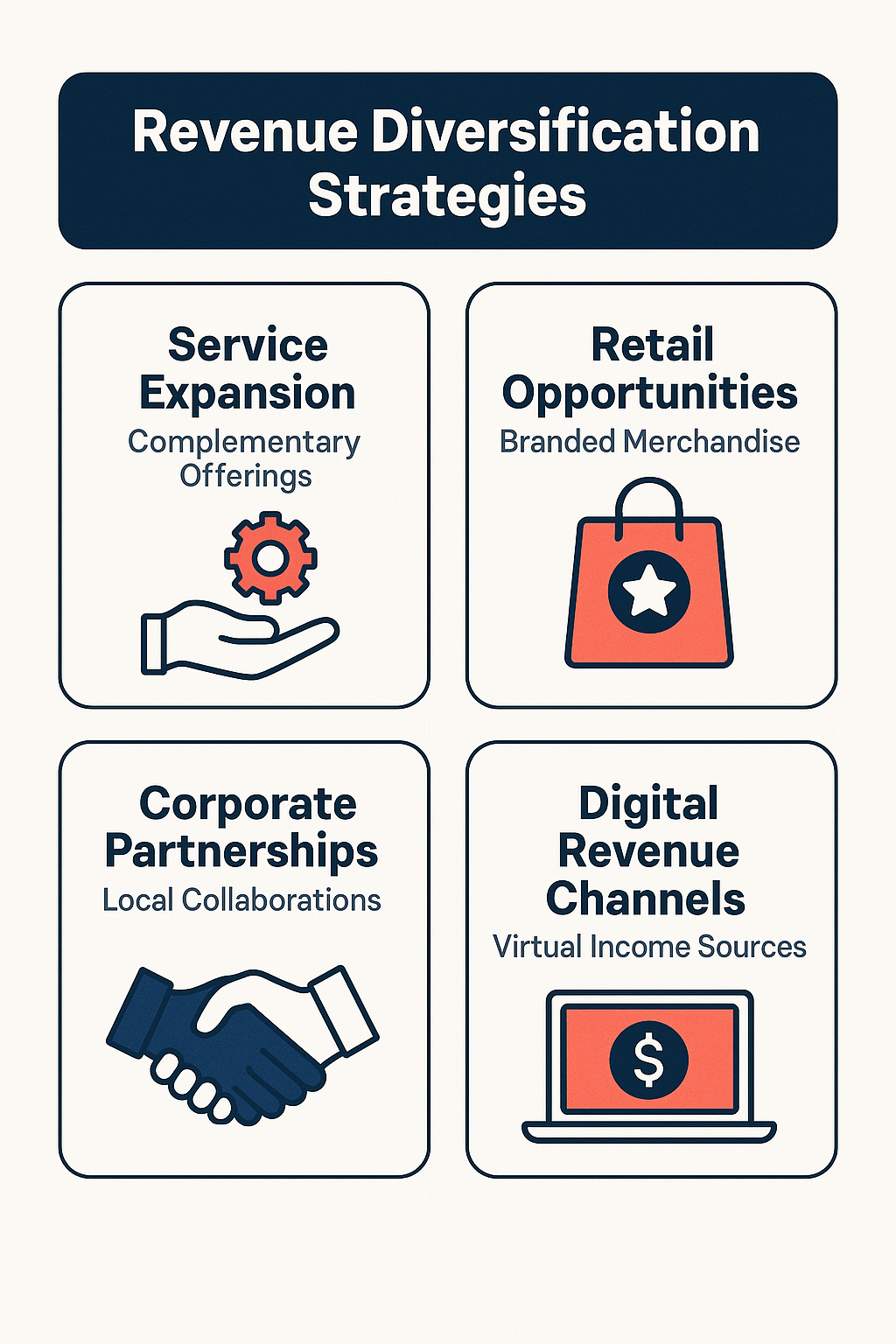The hospitality industry continues to navigate an evolving landscape shaped by changing consumer expectations and digital transformation. Strategic recovery planning for hospitality growth has become essential for businesses looking to thrive in this new environment. Success now requires a comprehensive approach that combines innovative marketing strategies, operational efficiency, and technology integration.
Today's hospitality businesses must adapt quickly to meet guests where they are, leveraging digital platforms while maintaining the personal touch that defines exceptional service. This transformation demands thoughtful planning and strategic implementation to ensure sustainable growth in an increasingly competitive market.
Essential Post-Pandemic Marketing Strategies
Post-pandemic marketing strategies require a fresh approach that addresses evolved consumer behaviors and expectations. The hospitality industry has witnessed significant shifts in how guests research, book, and experience services.
- Content Marketing Focus: Develop compelling storytelling that showcases your unique value proposition and connects emotionally with potential guests
- Online Reputation Management: Actively monitor and respond to reviews while encouraging positive feedback from satisfied customers
- Mobile Optimization: Ensure your digital presence works seamlessly across all mobile devices since travelers increasingly rely on smartphones for booking decisions
- Safety Communication: Clearly communicate health and safety protocols to build trust and confidence among potential visitors
Digital Booking System Optimization
Digital booking platforms have become the primary gateway for customer acquisition in hospitality. Streamlining these systems directly impacts your ability to capture and convert potential guests into confirmed reservations.
- User Experience Enhancement: Simplify the booking process with intuitive navigation and minimal steps from search to confirmation
- Real-Time Availability: Implement systems that show accurate availability and pricing to prevent booking conflicts and customer frustration
- Multiple Channel Integration: Connect your booking system across various platforms to maximize visibility and capture bookings from different sources
- Personalization Features: Offer tailored recommendations and customization options based on guest preferences and booking history
Revenue Stream Diversification Checklist

Diversification has proven crucial for hospitality businesses seeking resilient growth strategies. Multiple revenue streams provide stability and reduce dependence on traditional booking models.
- Service Expansion: Consider adding complementary services like event hosting, catering, or recreational activities that align with your brand
- Retail Opportunities: Develop branded merchandise or local partnership products that guests can purchase during their stay or online
- Corporate Partnerships: Build relationships with local businesses for group bookings, extended stays, or event collaborations
- Digital Revenue Channels: Explore virtual experiences, online consultations, or digital gift cards that generate income beyond physical visits
Strategic Growth Implementation Steps
Implementing strategic recovery planning for hospitality growth requires a systematic approach that prioritizes high-impact initiatives while maintaining operational stability.
- Market Analysis and Positioning: Conduct thorough research to understand your competitive landscape and identify unique positioning opportunities that resonate with target customers
- Technology Infrastructure Upgrade: Invest in systems that support seamless guest experiences while providing valuable data for business optimization and decision-making
- Staff Training and Development: Ensure your team understands new processes and technologies while maintaining the service standards that define your brand
- Performance Monitoring Systems: Establish metrics and tracking methods to measure the effectiveness of your growth strategies and make data-driven adjustments
Operational Efficiency Enhancement Process
Streamlining operations creates the foundation for sustainable growth by reducing costs and improving guest satisfaction simultaneously.
- Workflow Analysis: Review current processes to identify bottlenecks and inefficiencies that may be impacting guest experience or increasing operational costs
- Automation Integration: Implement technology solutions for routine tasks like check-in processes, inventory management, and customer communication to free up staff for high-value activities
- Resource Optimization: Analyze utilization patterns to better allocate staff, space, and resources during peak and off-peak periods
- Quality Control Systems: Develop consistent standards and monitoring processes that ensure service quality while identifying areas for continuous improvement
Digital Transformation Roadmap
Digital transformation continues to reshape guest expectations and operational possibilities within the hospitality sector. A structured approach ensures successful technology adoption.
- Guest Experience Technology: Deploy contactless solutions, mobile apps, and digital concierge services that enhance convenience while collecting valuable guest preference data
- Data Analytics Implementation: Use customer data to personalize experiences, optimize pricing strategies, and predict demand patterns for better resource planning
- Social Media Strategy Development: Create engaging content that showcases your property and services while building community and encouraging direct bookings
- Integration and Testing: Ensure all digital systems work together seamlessly and regularly test functionality to maintain optimal performance
Building Sustainable Recovery Success
The most successful hospitality businesses approach recovery as an opportunity to build stronger, more resilient operations. This means balancing immediate needs with long-term strategic positioning. Companies that invest in both technology and human capital while maintaining financial discipline tend to emerge stronger from challenging periods. The key lies in making thoughtful decisions that support both current cash flow and future growth potential, ensuring your business can adapt to whatever changes the market brings next.
Strategic recovery planning for hospitality growth requires a balanced approach that addresses immediate operational needs while positioning your business for long-term success. The combination of enhanced digital marketing, streamlined booking systems, and diversified revenue streams creates a robust foundation for sustainable growth.
Success in today's hospitality landscape depends on your ability to adapt quickly while maintaining the quality and service standards that define your brand. By implementing these strategic approaches systematically, you'll be better equipped to meet evolving guest expectations and capture new opportunities in an increasingly competitive market.

.png)






